
@HUStudentPubs
Facebook: Harding University Student Publications


@HUStudentPubs
Facebook: Harding University Student Publications
The Digital Forensics Lab at Harding University has officially received national accreditation, making it one of only two accredited digital crime laboratories in the state of Arkansas. The ANSI National Accreditation Board (ANAB), the highest national standard for testing and calibration laboratories, granted the accreditation in October 2025.
Sage Hawley, the lab’s quality assurance manager, explained the important role the Digital Forensics Lab plays in modern investigations.
“Bad guys do bad things, and they also have a phone in their pocket,” Hawley said. “The phone is now more important than DNA evidence in many cases. We take the phone, we dump it all, we analyze it and eventually it gets sent back to police departments, agencies and prosecutors.”
While the accreditation process typically takes at least 18 months, the Harding Digital Forensics Lab completed it in just seven months – a testament to the team’s dedication and work ethic. Lab manager RJ Holt described some of what went into the process.
“The accreditor asked a lot of technical questions,” Holt said. “They have to figure out how we obtain the evidence, what we do once we get the evidence and whether we handle it within the standards that the accrediting board was looking for.”
Students play an active role in the lab’s operations, gaining valuable hands-on experience that prepares them for careers in cybersecurity, digital forensics, software security development, and information security. Junior Caden Haustein, one of the few students trusted to work in the lab, described what it means for the lab to be accredited.
“We’ll be able to start working with the Arkansas State Crime Lab to deal with their backlog of digital forensic evidence, which can be more than a year’s worth of devices, to help our goal of accelerating investigations,” Haustein said. “What it means on a dayto-day level is that we’re preparing for an
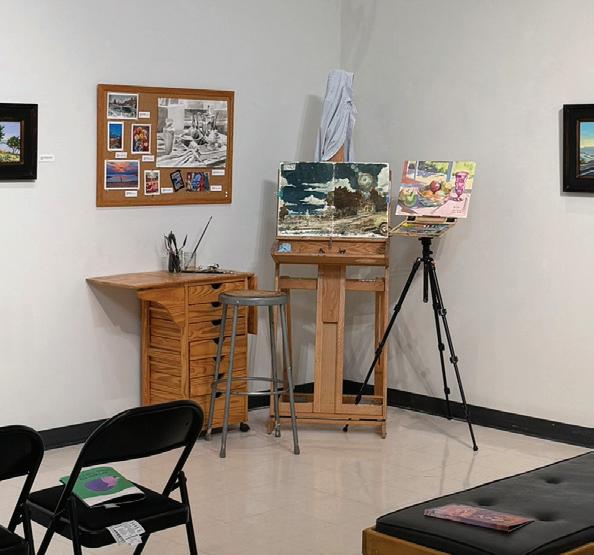


unprecedented increase in case load in the coming months as we start that partnership and look to expand further.”
Haustein, who serves as a systems administrator in the lab, has worked there for about five months. During that time, the lab has funded his training and two professional certifications in their Cellebrite software, which are credentials he can take with him into the workforce after graduation.

“My experience working in the lab has been amazing,” Haustein said. “I’ve gotten a lot of real world experience doing networking, IT and cybersecurity work, as well as getting to work on real cases and really develop a day to day understanding of digital forensics and how criminal investigations work, especially with regards to the legal concerns that the software has to assure.”
The accreditation marks a major milestone for Harding’s
Digital Forensics Lab, demonstrating its commitment to the highest professional and technical standards. It also expands the lab’s ability to collaborate with other accredited agencies, such as the Arkansas State Crime Lab, and ensures that its evidence is admissible in court.
“Our team has worked very hard for this,” Hawley said. “We’re a close knit group, we work together, and it’s a big deal, so we’re ready to shout it from the rooftops.”

The Harding University Student Government Association presented a lineup of student skills, from bands to dancing, during its “Harding’s Got Talent” show on
“It was an idea that was adopted and developed so that people with different talents could have a stage to showcase them,” Hume said. He connected the talent show directly to one of the SGA’s guiding themes for the academic year.
“It taps into the theme ‘available,’ so we’re
Hume also gave credit to the event’s lead organizer.
“I’m excited and proud of Emma Roach, who’s been the lead on this, and excited to see what happens,” Hume said.
One of the student performers was sophomore Evan Ashworth, who looked forward to singing “Three Wooden Crosses,” the 2002 hit by Randy Travis.

“Me and my friend Malcolm are performing a song,” Ashworth said. “Malcolm’s playing the guitar, and I’m singing.” When asked how long he has been singing, Ashworth kept his answer simple.
“I guess since I was born,” he said. Ashworth expressed his confidence in the upcoming show. “It’s going to be good,” he said.

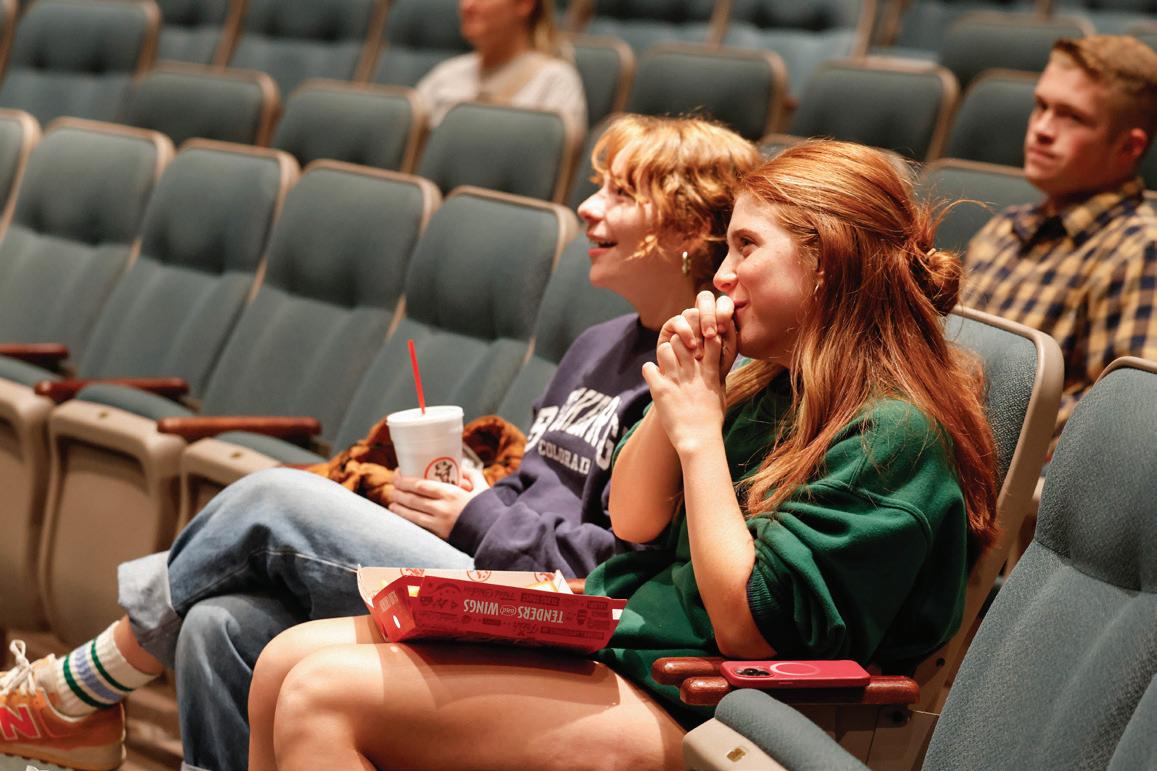
ABBY DAVIDSON features editor
During the summer before incoming freshmen move to campus, Harding offers a two-week Scholars Abroad program in Porto Rafti, Greece. Students enroll in a Bible class and complete assignments while visiting various historic sites such as Delphi, Athens and Corinth. The program is undergoing a change, however, and will now be offered as an Honors Symposium Abroad for students entering their senior year of high school.
“We have had a lot of conversations about whether or not the existing Scholars Abroad program was the best way to serve prospective students,” said Audra Pleasant, executive director of International Programs. “It was not really a recruitment tool; it was more of a program offered to students that gave them a jump start on Harding.”
The program is now aligning with Honors Symposium, a two-week summer program offered to rising high school seniors on Harding’s campus. Honors Symposium consists of four two-week sessions and is now labeling the two-week abroad program as a fifth session.
“[The Honors College] asked if the fifth session of Honors Symposium could take the place of Scholars Abroad,” Pleasant said. “Which we were open to and happy to try.”
During summer 2026, the program is offered to both rising seniors and incoming college freshmen, allowing a transition year from Scholars Abroad to Symposium Abroad.
Dr. Kraig Martin, associate professor of Bible and Ministry, has served as the professor for past Scholars Abroad trips and is excited to
see how the change brings more students to Harding.
“A couple of weeks overseas, and you really connect with people,” Martin said. “It might allow some students who are getting ready to start their senior year of high school to have an even stronger sense of who they will be going to college with.”
Junior Allie Laverty found out about the change when her younger sister looked into signing up for Honors Symposium as a rising junior and Scholars Abroad as an incoming freshman. However, Laverty feels that students might not get the same experiences abroad that she did while on campus.
“I cannot imagine anyone getting the same experience I did at Symposium while in Greece,” Laverty said. “But I also highly value the experiences on the Scholars Abroad trip. There is nothing like getting to experience another culture.”
Program developers have made some modifications to accommodate the switch to a younger age group for the new Honors Symposium abroad.
“This summer, they will all come to Searcy together, have a day of class and orientation with their professor and then all leave together,” Pleasant said. “I feel more comfortable about that with this younger age group traveling, and I think parents will feel more comfortable too.”
Despite these changes, Martin is confident that, regardless of the age difference, students will come away with valuable and memorable experiences.
“There is something about seeing the places, hearing the sounds and listening to the language while you are reading Plato or
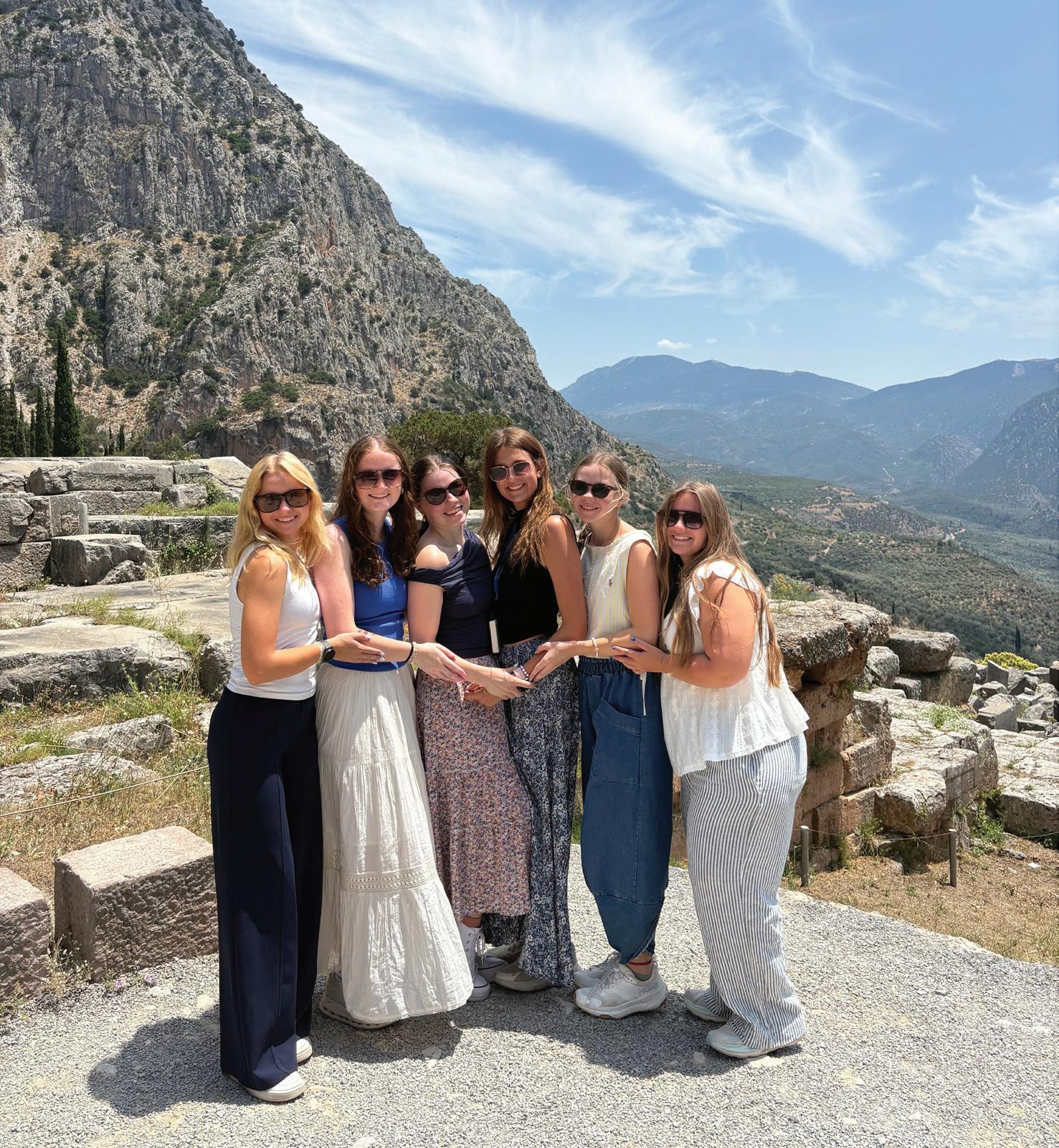
about Paul’s travels in Athens,” Martin said.
“While you are doing that, you are forming memories and connections with a group
of people who will be in the same place as you for some of the most formative years of your life.”
CLARA KERNODLE assistant copy editor
From Oct. 13 to Nov. 6, the Stevens Art Gallery on Harding campus hosted an exhibit by art professor Mitch Breitweiser. The exhibit was titled “Perspectives” and displayed his recent work in gouache and oil.
“Exhibits are totally new to me,” Breitweiser said. “I kind of put commercial illustrations to the side right before I started teaching here last fall, and I’ve always wanted to jump back into traditional painting.”
Many of the pieces depict colorful landscapes in the fast-drying medium of gouache.
“I started with the gouache, starting small and scaling up,” Breitweiser said. “Then I moved to oil paint, reacquainting myself with painting with pigments.”
Breitweiser visited Tahoe, California, in May 2025 through the faculty development program, which inspired the exhibit’s feature image and other pieces.
“That trip was really pivotal for me,” Breitweiser said. “I came back and started a series of paintings from that trip, and so there’s an oil painting, ‘Tahoe Mornings,’ and the one next to it, that are probably my favorites. I was trying to capture the feeling of the morning and the evening out there, in terms of the light and the temperature.”
All of the exhibited paintings are for sale. After the show ends, Breitweiser said, “Some of them are going on display and for sale in Midnight Oil, hopefully some will be sold to happy homes and some will come back home with me.”

Dr. Mac Sandlin, director of the Theological Studies program at Harding, has encouraged students to go admire the artwork.
“I’ve been a fan of Mitch’s for a long time, back when he was doing comic books,” Sandlin said. “To see him do gouache was interesting, very different. I enjoyed that a lot.”
Sandlin found the titular theme to be particularly engaging. “I like his two pieces that are highways, and I like the difference
in perspective and scale,” Sandlin said.
Students valued the opportunity to enjoy a high-quality art exhibit on Harding campus. Freshman architecture student Emily Smith shared her favorite piece from the exhibit, a vibrant depiction of a stone arch with outer space stretching beyond.
“I like the colors and the story behind it,” Smith said. “In Indian legend, they say creatures come through the arches, and
there’s a creature coming through the arch in the picture.” As a student who frequently works in the creative arts, Smith appreciated the exhibit’s display of artistic talent. “I have been drawing since I was five,” Smith said. “I do see [the exhibit] as inspiration, because he was playing with a medium that I have been scared to touch, which is gouache paint. He is very much inspiring to me.”
KENZIE JAMES news editor
When Club Week began on Oct. 19, students found that Harding’s updated anti-hazing policy did not change many social clubs’ activities.
Through the fall semester, the offices of Student Life and Public Safety emphasized the updated policy with emails to students, training resources and a mandatory meeting for all members of social clubs.
Delta Gamma Rho president Reed Wilson said the policy’s biggest change was implementing a reporting system. The Jeanne Clery Campus Safety Act requires schools to publish hazing reports on their website. In January, Harding began recording the statistics from hazing reports, which will appear in the annual campus safety and fire safety report, the Harding website and national database hazinginfo.org.
“This is about protecting new members, obviously, from being hazed,” Wilson said. “It’s protecting old members and the name of the club. It also protects the university, because if they have all these hazing claims, … that’s not a good look for the university as a whole, but also not a good look for each individual club.”
One noticeable change for students was using the terms “new member” and “new member class” instead of “pledge” and “pledge class” when addressing club members during
each day. Sophomore Sterling Ross, a member of men’s social club TNT, said the change made sense because of the terms’ negative connotations.
“Historically with collegiate groups, there’s been a lot of wrongdoings, and a lot of that is associated around words like ‘pledge,’” Ross said. “It’s
A total of 95 new members and 92 returning members in social clubs participated in surveys that asked questions on how rumors of activities affected new members and if the anti-hazing policy affected students’ mindset about Club Week. Nearly 38% of new member respondents said they were more nervous or scared going into the week after

understandable and it’s a good transition away.”
Before the week started, some students tried to spread rumors about club week activities — which is not considered hazing — through word of mouth and on YikYak. Freshman Anna Kallenbach said older students told her Ko Jo Kai had a hard Club Week, but none of the students were members of the club.
hearing rumors, while about 15% said they were more excited going into Club Week after hearing rumors. Forty-seven percent of new members were not affected by the Club Week stories they heard. Kallenbach
said she and most of the new members she knew were not affected by rumors because they knew the stories were fake. The hardest part for Kallenbach was the anticipation at the beginning of the week, not specific activities.
“The scariest part [of Club Week] was that you had no idea,” Kallenbach said. “It was not scary at all once you knew.”
Over 90% of returning member respondents said they did not spread rumors about their club’s activities, and a majority of participants said the policy changes did not affect how club members treated the new members.
Director of Campus Life Jane Chandler sat down with officers from each club to approve their Club Week activities to ensure they aligned with the anti-hazing policy. Even though their clubs’ activities were approved, 19.6% of survey participants said they were more cautious during Club Week because of the policy.
Ross said the change made TNT’s week less spontaneous and it did not include all the traditions members have done in past years. Despite the change, the new members still had the opportunity to form friendships with each other and with older members.
“The essential aspect of the week is to have that bonding, as well as some traditions and good memories,” Ross said. “I still see that it was a really good Club Week for them. It’s different, but I don’t know if that’s a bad thing.”

The United States Interstate Highway System is a modern marvel. It’s impressive, really! It connects the entire country, and took an unimaginable amount of effort to build, especially when it started in the 1950s. But here’s the thing: It wasn’t the first transportation system that connected America, and it’s not the best, either. Or, at least, it shouldn’t be.
The American railroad system used to be a modern marvel. Before the invention of the combustion engine and Henry Ford’s assembly line, steam trains dominated transportation of freight and passengers across the United States, rail lines ran between every city and the East and West Coasts became truly connected. But as the Industrial Revolution continued and the automobile industry took over, passenger rail became less and less profitable. In a desperate move to save the railroads, the federal government deregulated the industry in 1970 with the Rail Passenger Service Act, which created Amtrak. Unfortunately, anyone who has spent any time relying on Amtrak trains knows that they are notoriously slow and inconsistent, but it’s not their fault. The Amtrak Improvement Act of 1973 made it clear to the now freight-only railways that passenger trains had priority over their trains, since they often used the same rails and freight trains were, and still are, much slower. However, the railway companies simply don’t care, and have continued to hog the rails with long, slow trains. This has stopped Amtrak from operating at full efficiency, making people think Amtrak is a failure, but it simply isn’t; it just hasn’t been given a fair chance.

Chattanooga and Atlanta as part of a larger network connecting major cities with passenger-only systems.
And while trains have a high potential to improve American transportation again, it’s not the only mode of transport we should look into. In a smaller scale area where cars dominate travel even more than on the highways, we need to look into getting away from automobile travel. Cars are significantly less safe than trains and planes, being ranked at the fifth highest cause of death across the U.S., but they honestly aren’t entirely necessary in our day to day lives, we just don’t have the infrastructure to support other forms of travel in our cities and towns.
or elevated trains can help cut down on car traffic, but unfortunately it takes time, and we don’t really like waiting. Luckily, these investments are starting to be made, even right here in Searcy.
Earlier this year, Searcy received a $4.2 million RAISE (Rebuilding American Infrastructure with Sustainability and Equity) grant from the Department of Transportation through the Bipartisan Infrastructure Investment and Jobs Act for the Little Red Greenway project, which will connect important areas and services around the city, including Harding University and downtown Searcy. The project was highlighted by then-Secretary of Transportation Pete Buttigieg in August 2024.

(Thanks for your patience last week… I discovered if you make too many religious jokes, your column will be struck.)
Time of writing - 3:23 a.m.
I don’t know if y’all heard, but Harding barely escaped the burning flames of Tartarus by the skin of its academic teeth. There I was, sitting awake in my bed at 11:30 p.m. (an early time for me), waiting to schedule my classes, when I noticed something peculiar on Harding’s website. Their academic catalogue is called,“the liberal arts.”
Good golly glory, it cannot be.
How could we have missed this? Can it really be true that for over a hundred years, Harding University has not been the good conservative university as God intended, but a liberal one? Fellow students, we’ve been played for absolute fools.

The good news is that the rails needed for an expansion of Amtrak already exist in many places, but that’s not all. Plans are in place across the country for installation of high speed rails, specially made for passenger service connecting cities close enough for frequent commuter work and travel. For example, the Department of Transportation has already started planning a high speed rail

Harbin: When you think of the glorious name, what do you picture? A rough time in the community showers? People holed up in their dorm rooms all alone? Or do you picture the reality of Harbin, the community that it has?
Harbin, by far, has the best freshman community a dorm
Most American cities that were established after colonial rule have been built up around the horse and carriage or the car, not walking, like major cities on the East Coast or in Europe. Outside of downtown areas, it feels almost impossible to get anywhere without a car because of big roads and the design of our neighborhoods and shopping centers, but that can change. Development of bike paths and walking trails to connect neighborhoods and commercial areas, along with investment
Cars are important in America, and they have been for a long time. Our roads, routes and highways have been the backbone of the economy and travel since World War II, but they don’t have to be. With a little investment in rail travel and walkability, we can clean up our cities’ air and streets, saving lives along the way. And who knows, a few more train rides and a few less car trips might just save the ice caps!
who could possibly be their best friends for life. It was an amazing experience getting to know people from all over the U.S., and some from outside the nation. The next few days, it was clear to everyone that these bonds that were beginning to form would last for a lifetime.
It was a lot of people’s first times
we have each other’s backs. Staying up until midnight every night and praying at the start of curfew doesn’t do anything but bring us closer, emotionally, spiritually and mentally. Our RAs care for us, love us, reach out when we may need it.

Sure, Armstrong may have a few tight bonds here and there, but it’s nothing like Harbin’s. We keep our doors open, and we welcome everyone. I’m currently on a couch in someone else’s room writing this article, and if that doesn’t tell you we have the best community, I don’t know what would. See, in the wise words of Zion Petruska, “Harbin isn’t a dorm, it’s a people.” And I stand firm in that. Tough places like Harbin are what helps us grow together, and we face it together.
I wouldn’t want it any other way if I knew I wouldn’t be as close to my peers. And that’s not to say Harbin is bad, or it’s due for a remodeling (which it would be nice, since Armstrong was and all) but to say that we have the best community. At the end of the day, like Zion said, it’s about the people. It’s about the people who fill the halls with laughter, love and faith. And P.S. we have superior AC and Orbeez gun fights.
Fortunately for the sake of our souls, Harding is soon going to rectify this wrong. How do I know? Below, thank me later, I leaked part of a Facebook post Harding will send out this weekend, addressing this great evil in our midst. So sit back and relax, Harding’s already on the case. And if you’re one of those morally corrupted students who agree with tenets of the liberal ideology… Consider transferring to Pepperdine.
Good afternoon, Harding family. I hope this message finds you well.
While we continually pray to God that we do not err in our instruction, sometimes we, in our human frailty, falter and stumble in our mission to deliver a Christian education.In our yearly review of our academic catalog, the board of directors and I noticed a bitter flaw in our curriculum. It has come to our attention that for years, we have required half of our students’ coursework to come from a liberal arts perspective. We cannot describe how saddened we are that the liberal infiltrated our good conservative school.
We have immediately begun several restructuring efforts across campus to put this right. We have hired 100 priests to sprinkle holy water over every inch of campus (including the Heritage couches and Lee building) to remove every stain of sin. In addition, all non-STEM majors have been discontinued and our daily chapel has been increased by five hours.
Several catalogue changes will take effect in the fall of 2026 to completely rid ourselves of this evil liberal ideology.
-All Shakespeare plays taught by the English department have been replaced by the religious revisionist book set “Shake-Spirit.” New plays such as “As God Likes It,” “Romeo and Juliet and the Sinful Flesh,” “Mid-Summer Camp Baptism” and “Twelfth Night (of Fasting)” will replace the old fodder.
-The film department will focus solely on teaching students to produce episodes of “The Chosen.”
-The faculty advisors overseeing our student publications, such as The Bison and HU16, have been instructed to rid our news of any words not found in the Bible or in C. S. Lewis’ “Mere Christianity.”
-In further accordance with the values found in “Mere Christianity,” political science majors will be barred from taking preaching classes or double-majoring in Theological Studies.
-To ensure our students understand and live out proper political values, a copy of the Ten Presidential Commandments will be hung in every classroom, bathroom and dorm room.These commandments will encourage students to live moral lives with reminders such as, “Have no presidents before me,” “Remember chapel and keep it holy” and “Honor thy donors and trustees, that you may sleep long in the dorm room your gracious president hath given thee.”
For the students who cannot align themselves with our values, our Administration sees fit to create the Intensive Christian Engagement squad, a group of Harding faculty specifically designated to promote spiritual and ideological growth among students. Each week, members of the Engagement Squad will question participants about their faith and motivations. If any unaligned thoughts are detected,the student will be taken to a reflection facility where an AI facilitator trained on thousands of hours of Ben Shapiro speeches will re-educate them on common spiritual misconceptions until they understand their error.
We think these changes will help us greatly on our mission to grow closer to God, and we ask your continual support, both emotionally and financially, as we walk further on this journey.
RENEAU is the opinions editor for
He may be contacted at areneau@harding.edu.

Maybe it’s the cozy clothes and funky sweaters, or maybe it’s just that I hate being hot, but I really suffer from seasonal depression (or opposite seasonal depression, rather). Luckily, that means that I am now entering my happiest time of the year! I now get to wake up every morning to a cold house, pull on some cozy pants and a warm sweater and head out the door, excited to have a red nose for the rest of the day. As soon as Halloween ends, I become insufferable. The tree goes up, the playlists come out and suddenly every coffee I drink needs to taste like peppermint.

There’s something about cold air that gives me permission to relax. I don’t feel guilty staying inside, or saying no to plans. The plans that I do make, I look forward to more because I know I’ll love my outfit and won’t have to risk sweat stains or sun burns. Winter

feels like a long exhale after months of waiting around.
I think most of my love for winter comes from the way it slows everything down. The world gets quieter, and I notice things more – the sound of wind and rain at night, the way people sit a little closer together for warmth, the decorations and lights on every street and building. People seem to bake more, watch more movies and do more crafts. We have more reasons to gather, to dress up, to seek out gifts for your friends and family.
Maybe that’s another reason I’ve always clung to winter – it gives me room to breathe when life feels heavy. There’s comfort in its stillness, in knowing that the world slows down long enough for you to catch your breath too. This year, though, life demanded that I find that same peace in the heat of summer. I am fortunate (and shocked) to say that I did not crave this fall and winter as badly as I normally would. After experiencing the death of two loved ones within three days of each other at the start of my summer, I felt determined to fill the rest of my summer with only things that would force me to feel happiness and love in the midst of mourning.
Maggie Samples, who inspired the name and reason for this column, felt like spring into summer to me. Her blond hair and blue eyes, her middle name being “June”, her love of reading, her smile that felt like a literal ray of sunshine. Any perfect spring or summer scene I could think of, Maggie would fit in perfectly. So, I tried to picture her everywhere I went, forcing me to find the beauty in summer, even in mourning.
I’ll always be a winter person. I’ll still put up my tree too early and drink peppermint coffee long after Christmas. But this year reminded me that there’s beauty in every season, and that sometimes, the warmth you find in winter is leftover from bright summer days. Now, when I think of summer, I think of her. Of sunlight and books and laughter that still lingers. Maybe my opposite seasonal depression isn’t so opposite anymore.

Anyone who knows me knows how important my journals are to me. This habit, hobby, obsession—whatever you want to call it—started in March of 2020, shortly before the world shut down, and I have never stopped. I started with a yellow journal and have progressed through the rainbow order of colors. For a while, I was able to condense a year of my life into one journal (2022, 2023 and 2024; light green, dark green and blue, respectively).This year, however, I am already on journal three. To be fair, I went abroad this summer, and that merited a journal of its own (pink). But in the same space where I had once captured 365 days of my life, now I was barely able to fit five weeks’ worth. 2025 has proved to be a year I never saw coming for this exact reason. Within the pages of my first journal of 2025 (light purple), I documented in vivid detail the first day of the semester, trips to Conway for Cane’s with friends, several opinion pieces from the Bison that I appreciated, my week of Valentine’s themed outfits, pictures from the night one of my best friends was beauxed, everything that happened to me on a StuPubssponsored trip to New York City, pictures of my friends and I dressed as fairies at a Delta Nu formal, a written account and pictures from the day I read one of my poems in front of students and faculty from the English Department, a reflection of emotions after junior year that tried to process the burnout I was feeling, my take on Met Gala outfits, my sister’s high school graduation and my review of the Benson Boone Crumbl cookie. All of that and so many random days in between.
in seeking out beauty in nontraditional ways. When I was still hanging on to my tiny, used candle after Maggie and Phil’s memorial and cleaning the wax off of the protective paper shield, my friend asked, “Keeping that for your journal?” Yes. Because I could not fit this desk in my suitcase to France for my trip abroad, the only things decorating that journal are daily diary entries and whatever scraps of paper I could collect during my stay there. It is my thickest journal to date.I kept my boarding passes from the flights there and back, the rose-printed napkin that my professor and his wife bought for my birthday dinner while we were there, museum tickets, parking passes, postcards, my candy wrappers of the free chocolate we tasted at the Maison Callier chocolate factory, coasters from our favorite cafés, receipts from
amassed piles of junk messied our rooms and the kitchen table. One of these friends, Lydia, was scared to start journaling and glue things to the pages definitively, in a way that couldn’t be changed. She felt like it wasn’t worth it to start in the middle of the trip as opposed to the first day like I had.
Many times I reminded her,“When you’re old, you’re going to wish you had anything tangible to remember your life. Quit worrying about it being perfect.”She eventually took my advice and started to journal every day with me.
I really do believe what I told her. I don’t look back at my journal from my junior year of high school and hate it because I don’t think it’s as pretty as my current one (pink with deep red strawberries on it). I’m glad I have something from that time to remember what my life was like.

While I do have an entire desk full of construction paper, ephemera, washi tape, markers and other journaling supplies, my favorite thing to use is junk—stuff that only has value because I say it does. Collecting junk has become a habit for me and a lesson
I convinced my friends who traveled with me to start journaling with me over these five weeks. We had to convince our professor to let us take a detour to a grocery store for glue sticks one day because we quickly went through the two that I packed with me. Each of our
Now, I always carry my journal and at least one book with me at all times (although, in true English major fashion, I often have more than one.)
The importance of journaling came up while reading excerpts of Benjamin Franklin’s autobiography for my American Literature class.I came across a sentence that I particularly liked.Talking about life, he said,“[S]ince such a Repetition is not to be expected, the Thing most like living one’s Life over again, seems to be a Recollection of that Life; and to make that Recollection as durable as possible, the putting it down in Writing.”
He’s right.
So if you’ve taken anything from this, I hope it’s the initiative to start journaling in whatever way appeals to you. Text me, and I’ll do it with you. By the time you’re reading this, there will already be a copy of this article that I’ve cut out and glued into my journal.
Last Saturday I got an email from the U.S.State Department that told me my passport renewal application had been received, and that it would be processed in four to six weeks.
The new passport arrived in the mail that same afternoon.
However,the fact that my previous one expired in 2013 may tell you something about my travel habits. I’ve been outside the country just three times in my life: once for an academic conference in Liverpool, then for a two-week mission trip to Ukraine, and finally for three months with Harding University in England.
Our third president, Dr. Clifton L. Ganus, told me that he had visited 120 countries in his lifetime, which put me to shame. Incidentally, it was under his administration that our study abroad program was born 45 years ago.All because of the persuasive insistence of one man.
Long before he became a full-time professor of Bible at Harding, Don Shackelford had served with his wife Joyce as a missionary in Italy, first in Sicily and later in Florence. He believed sincerely in the call of the Great Commission to preach the gospel everywhere, and he felt with equal fervor that Harding students should start early exploring that call.He directed the International Campaigns program (now known as Global Outreach) for years,sending students on short-term mission trips all over the world.
But Shackelford also believed that the best overseas experiences combined missions with cultural education. So, starting in 1980, he spearheaded International Studies, which began in Florence and eventually grew during the administration of Dr. David Burks to include programs in England, Greece, Australia, Chile and Zambia.
Since Shackelford retired nearly 25 years ago, few current students would know him. Yet if you have spent a semester abroad, then you owe much to the man who first had the dream and worked hard to make it happen. And who then let it grow under the leadership of others, including the late
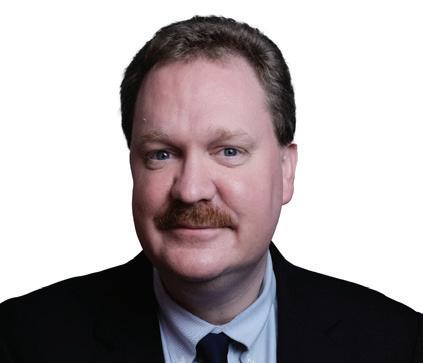
Dr. Jeff Hopper and now Audra Pleasant. International Programs has never been solely about tourism, or even solely about course credits. Shackelford believed they were also about relationships with the locals.
In 1966,a terrible flood struck Florence.Don— then President of Florence Bible School—took students outside to clean up, working tirelessly to shovel mud out of the museums.
They joined thousands of volunteers who came from all over the country to rescue priceless works of art and architecture.The locals never forgot that kindness and have taken Shackelford’s students to their hearts ever since. To this day, Florentines still recall the“angeli del fango,”which means“mud angels.”
The family had four kids,and son Robbie and his wife Mona served as directors of Harding University in Florence for 34 years until 2024. With their passion for the gospel and Italian culture, Robbie and Mona encouraged others to aggressively seek beauty and wake up with a hymn on their hearts, thus endearing themselves to several generations of HUF students and faculty. All this legacy they inherited from Don Shackelford.
At over six feet,Don was an imposing figure.He read Hebrew and Greek. He wrote a dissertation and later a commentary on the famously difficult book of Job.His resume was equally impressive: four years as President of Florence Bible School, two years as Chair of the Bible Department at Lubbock Christian, over a decade serving as an elder at the Cloverdale Church of Christ, and almost 30 years teaching Bible at Harding.
at the age of 91,he was warmly remembered by his family for his kindness,his passion for archaeology, his fondness for espresso and Tootsie Rolls and for his generosity. A grandson recalled that his wife wanted to travel to Albania to see her family, and Don paid for the ticket. He loved making it possible for others to see the world.
I’m sorry I never knew the man. I came to Harding two years after he retired,and though we lived in the same town, our paths just didn’t cross. But in our delightfully small world,I have discovered connections: my former chair was one of the first professors to teach at HUF. Don’s daughter gives me a flu shot every year. His son-in-law Shawn Daggett took missions classes from my uncle at Lipscomb, and Don’s father baptized one of my neighbors over 70 years ago.
I wish I were more like Don Shackelford and a model citizen of the world.But then God bends the laws of physics so that my six-week passport renewal process happens in five hours.
Maybe He’s telling me to turn over a new leaf.
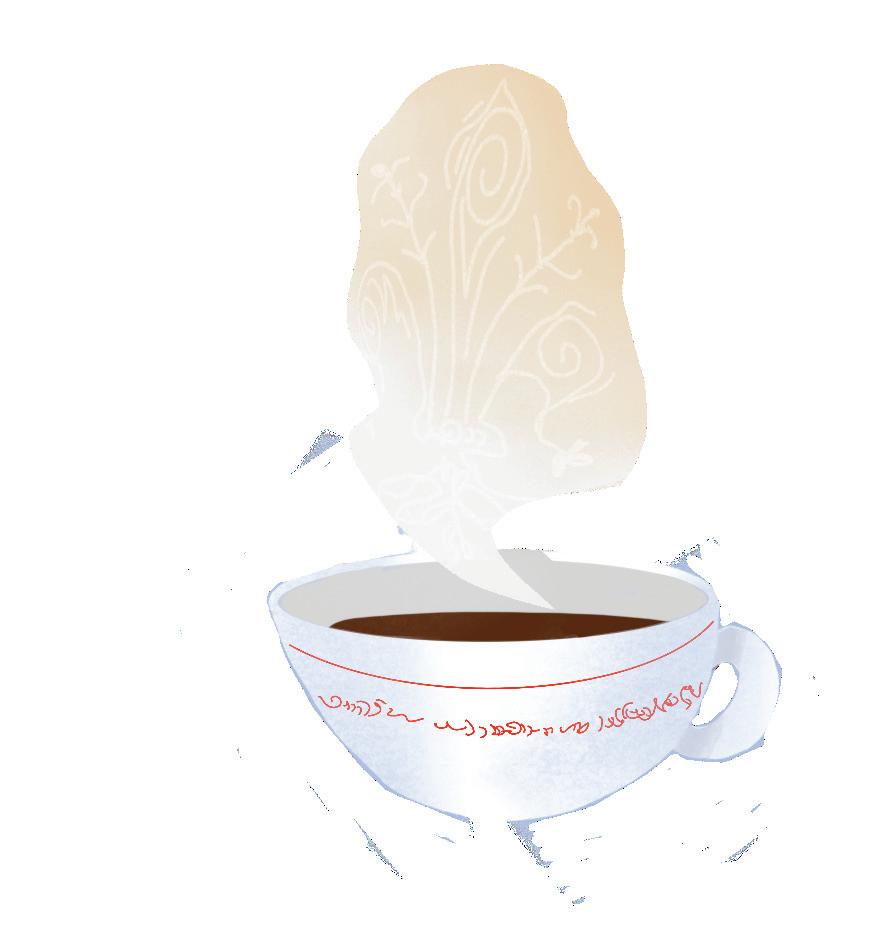
When he passed away at the end of September
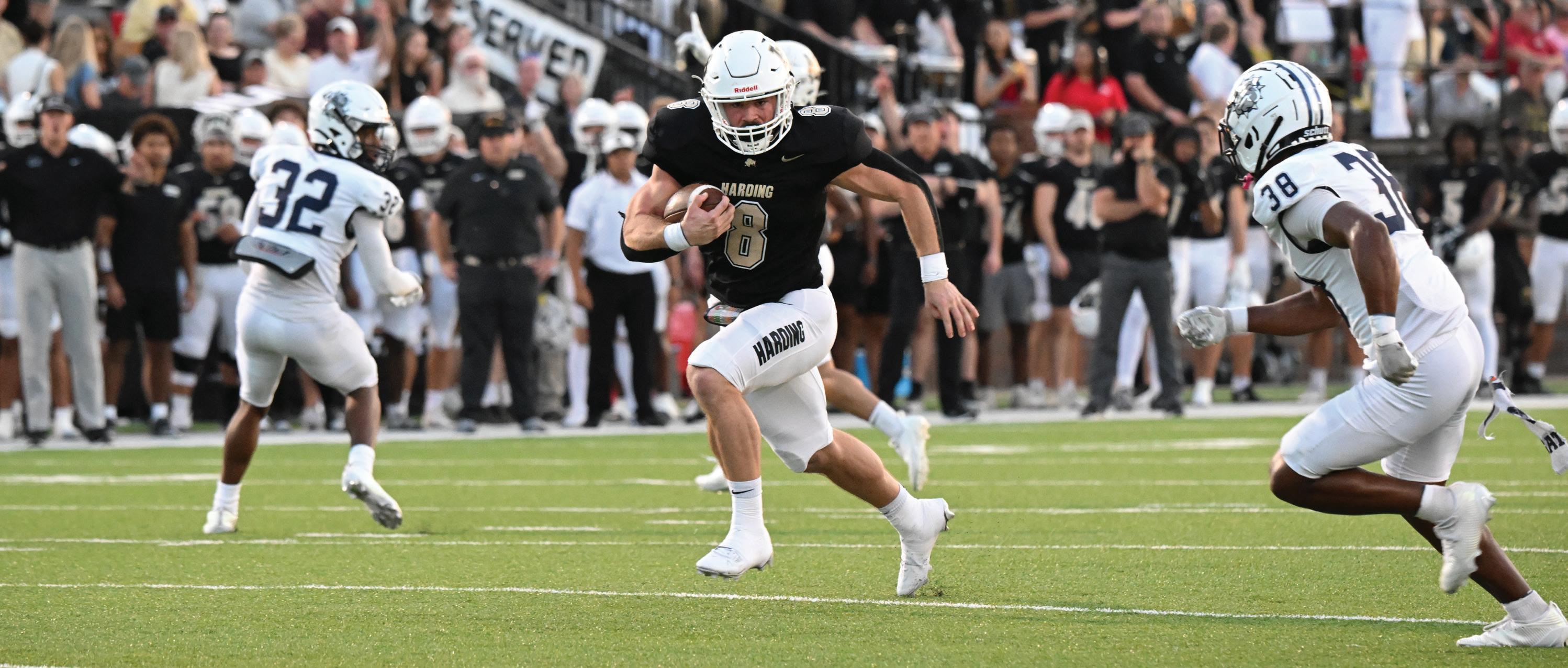
CARTER OWENS
Harding University football has continued to make national headlines this season with record-breaking performances and prestigious award nominations. From standout rushing achievements to national academic honors, the Bisons are proving their strength on and off the field.
One of the key contributors to the Bisons’ success is junior running back Andrew Miller, who set a school record in week seven with 298 rushing yards and a career-high four touchdowns.
Junior running back Josh Strickland Jr. described Miller’s talent.
“The way he works every day and the talent that he has—both of them combined make him dangerous on the field,” Strickland said.
Miller also set a new NCAA Division II record for rushing yards in a single quarter, running for 233 yards in the third quarter of Harding’s win over Henderson State.
Head coach Paul Simmons said Miller’s success comes as no surprise.
“Nothing that he does is surprising because of the way he works and how talented he is,” Simmons said. “He would certainly give credit to the o-line and the coaches, which is the kind of kid he is, but he’s really a dangerous player.”
Another standout for the Bisons this season is senior defensive back Ty Dugger, who has been named a finalist for the 2025 William V. Campbell Award—one of college football’s most prestigious honors.
National Football Foundation chairman Archie Manning said in a statement, “These finalists exemplify the very best that our sport
has to offer on the field, in the classroom and as leaders in their communities. They exude excellence in all areas of their lives, and we know they have only begun to reach their potential.”
Simmons said Dugger’s character and consistency make him an ideal candidate for the award.
“He is such a winner,” Simmons said. “He’s one of those guys that is at his very best in tough situations in the biggest games. That’s when he plays his best. He’s got a playmaking instinct, but he rarely makes a mistake. You couple that with him being a really elite leader and a really elite student, and that makes him a perfect candidate for the Campbell Award.”
Simmons, who recently coached his 100th game at Harding, said his deep connection to the program is what continues to drive him.
Photo provided by JEFF MONTGOMERY
“Harding—obviously this has always been home for me,” Simmons said. “I played here. So much of who I am is because of my experience here with Harding football, and I’m a relationship guy.”
For Simmons, it’s the impact on his players that makes his work meaningful.
“The things that matter most—mentoring and leading young men to accept the role that God called them to as fantastic fathers, husbands and Christian servants—this has always been a place where the skills God gave me fit really well,” Simmons said. “This has been a place that has loved me well, and I’ve always wanted to give back as much as I can.”
ROYAL BITIKOFER guest writer
Harding University’s golf program is welcoming back a familiar face to lead into a new chapter. Former Bison standout Samuel Tandy, one of the most accomplished players in school history, has officially taken over as head coach for both the men’s and women’s golf teams.
Tandy graduated from Harding in 2024 with a degree in finance and a long list of athletic accomplishments. He holds the school record for career scoring average (72.24) and individual winning percentage (.832), earning All-America and Academic All-America honors along the way.
“I had never considered coaching until I attended one of the men’s tournaments in the fall after I graduated,” Tandy said. “I love the atmosphere and did not realize how much I missed it.”
The visit ultimately ignited Tandy’s love of the game and his focus on the bond formed through his shared goals and faith in Christ with the team.
For Tandy, the opportunity feels like a chance to help his athletes grow not only as competitors but also as Christians.
Standout junior Jose Aruz said that Tandy is already impacting him in positive ways.
“Tandy tells us, don’t just be great athletes, but rather be great men,” Aruz said.
Aruz said that the golf team also holds a Bible study every Friday and prays before each event, reflecting Tandy’s commitment to developing Christ-centered athletes. Tandy says he’s now stepping into a role that allows him to give back to the program that shaped him.
“My number one goal is for our athletes to leave Harding ready to be bold change agents for Christ in everything they do,” Tandy said. “Men and women who are dependable, accountable, and trustworthy.”
Tandy’s competitive spirit has seamlessly carried into his leadership this season. Under his guidance, standout golfer Jose Aruz captured the Tulsa Cup title, and both the men’s and women’s teams placed among the top contenders at regionals.
Junior Dennis Staykov, another standout on the team, sai that Tandy has the kind of leadership that can guide them to success while fostering strong relationships within the team and the wider community.
“Coach Tandy’s very supportive; he always asks us if we need anything or how he can help,” Staykov said. “It’s encouraging knowing that he’s been through what we’ve been through as a student and an athlete.”
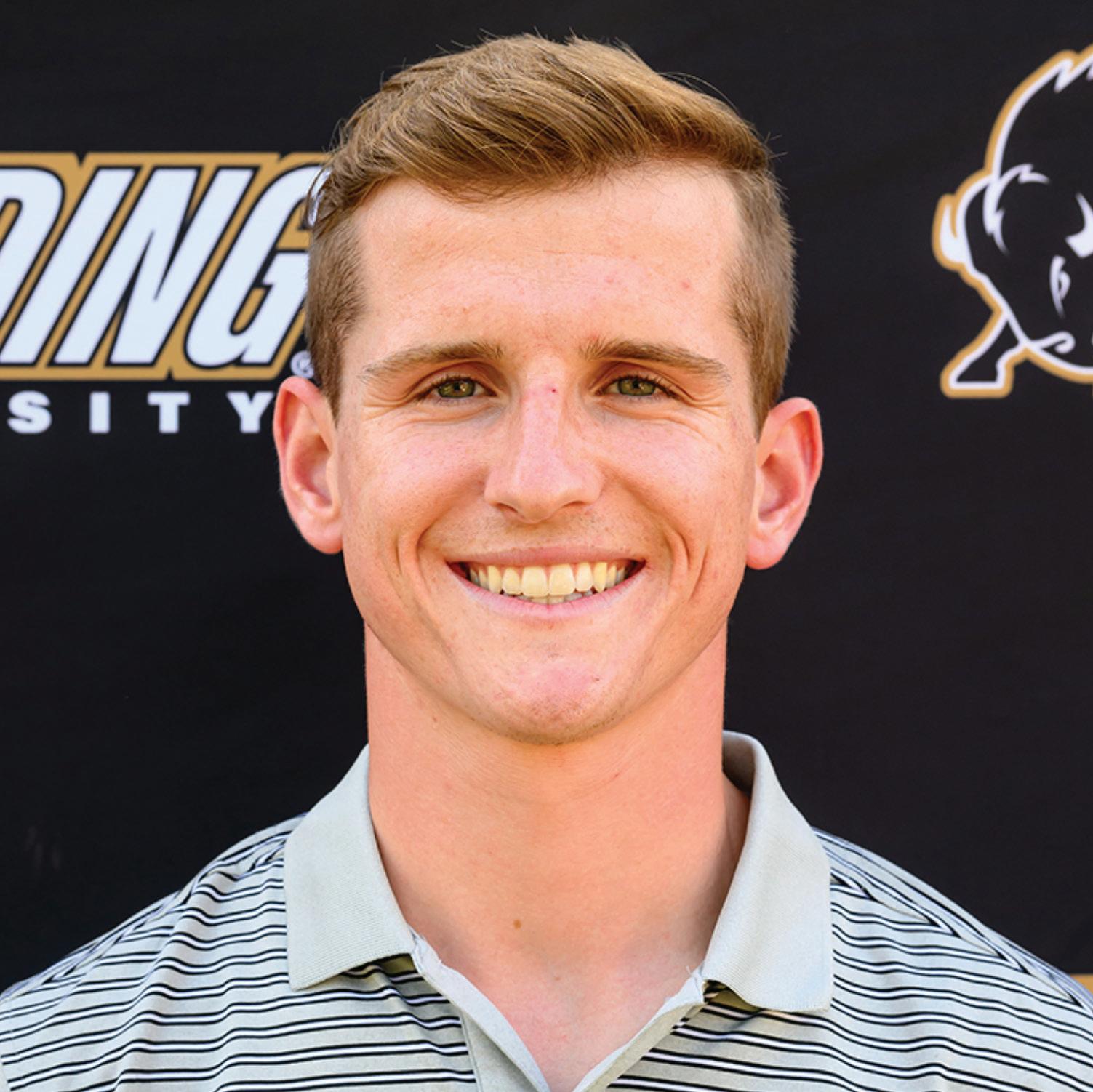
ANDREW RENEAU opinions editor
On Nov. 1, the NCAA delayed a significant shift towards allowing student-athletes to place professional sports bets. United States Representatives Brett Guthrie, John Joyce and Gus Bilirakis (all from the Energy and Commerce Committee) asked NCAA President Charlie Baker in a letter to give more details on the proposed rule change. The letter, published last Friday, requested a briefing which asked if the NCAA had completed studies on the effects of gambling on student-athletes and questioned how they intended to police gambling once the students graduate into professional athletes. The request for a briefing comes less than two weeks after the Energy and Commerce
Committee opened an investigation into sports fixing and illegal gambling.
The NCAA seems resolute to push forward with their regulation shift while maintaining integrity.
“We are grateful for federal law enforcement’s efforts to stamp out illegal sports betting, and I am proud that the NCAA continues to have the most aggressive competition integrity policies in place,” Baker said in a statement issued Oct. 23. “The Association has and will continue to pursue sports betting violations using a layered integrity monitoring program for over 22,000 contests, but we still need more states, regulators and gaming companies to help in this effort by eliminating risky prop bets to reduce opportunities for manipulation.”
The Senate requested Baker send the briefing Nov. 13, and if all goes well, Baker intends to follow through with his original student-athlete betting changes on Nov. 22.
Student-athletes are students first and then athletes, as the NCAA further proves by its resolutions to allow them to place sports bets. Harding has its own slew of student-athletes, but it is unlikely any of them will be allowed to bet. The 2025 student handbook is firmly against student gambling, and prohibits wagering on and off campus.
Senior Ana Rodas shared her view.
“This is a private organization,” Rodas said. “If the rules say, ‘students don’t gamble in this institution,’ then they shouldn’t. It’s part of [the] core values of Harding.”
Moreover, students support the gambling ban, and would support a foreseeable decision by Harding to enforce their rules. Senior Andrew Williamson agreed with Harding’s rule. “I think student-athletes should not be allowed to bet on the college level,” Williamson said. “If they want to bet on a professional level, it’s up to them.”

Harding Place is planning its expansion with the addition of terraces benefiting not only the current residents, but also the 407 people who are currently on the waitlist. Those on the list typically wait a minimum of two to three years for the chance to get a room.
Former Harding president David Burks described the new terraces’ benefits.
“The new facilities will include some new amenities like terraces or patios for each individual apartment,” Burks said. “Each individual apartment will have its own washer and dryer.”
Executive Director of Growth and Strategy Phil Thompson said that the groundbreaking for this project is set to take place “sometime at the beginning of the year.”
Further, as Chief Growth and Strategy Officer Paul Maynard shared, the project developers are “hoping to open up in the fall of 2027.” He also stated that he likes to think of this facility as a hotel.
“Everyone will have the same amenities, but residents can choose which price point and style of room is best for them,” Maynard said.
Because the new terrace apartments will have nicer amenities and larger square footage than current apartments, the price point of the new terraces will be higher. Maynard explained that the new terraces will be funded by “tax exempt financing options for projects like this that will benefit the community for a not-for-profit organization.”
Harding Place Executive Director Randy Reynolds and marketing director
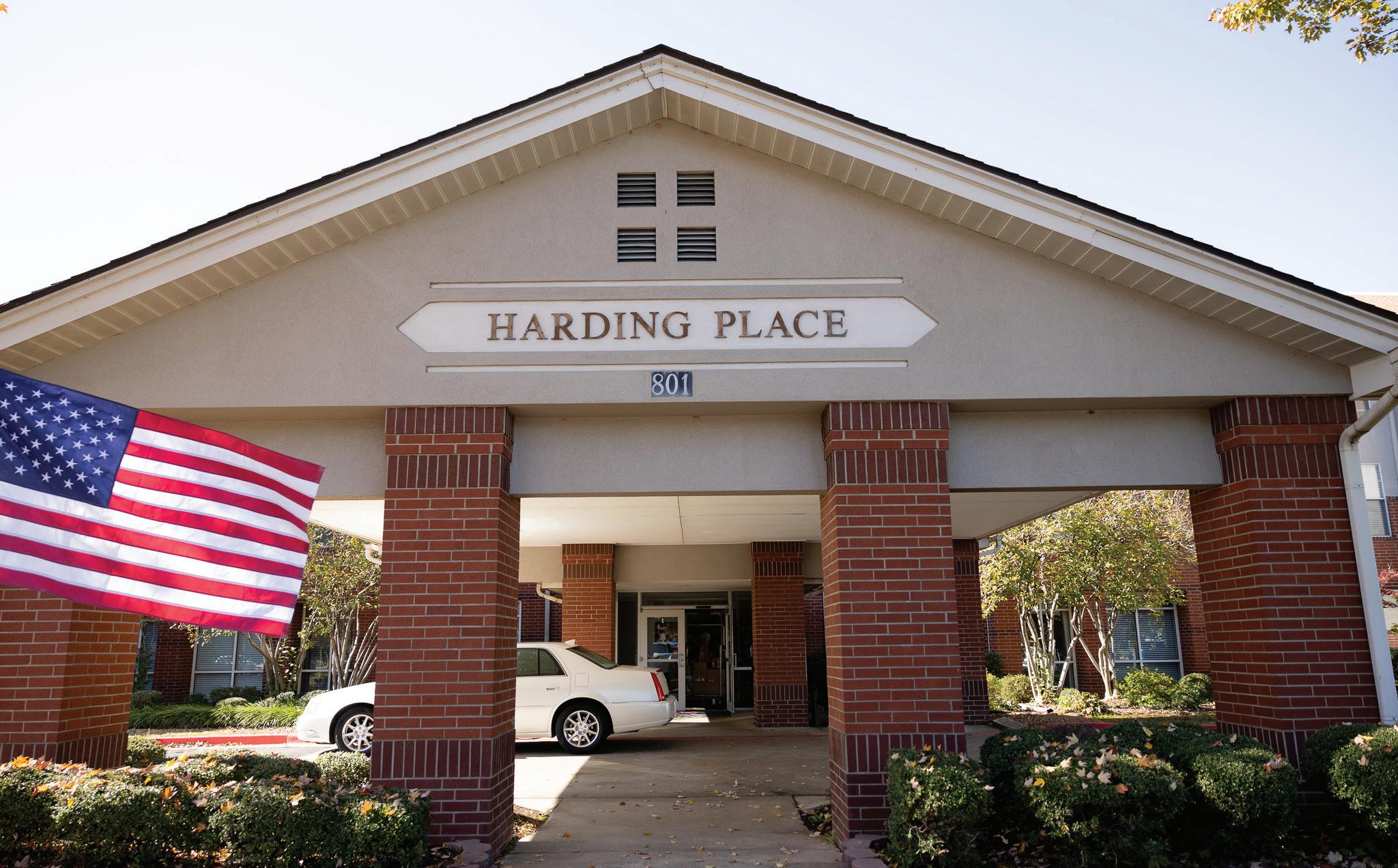
Sandy Reynolds have overseen the facility for 16 years.
“They do an incredible job of leading Harding Place and providing for the residents’ needs,” Burks said.
Maynard estimates that about 100 people will be able to come off the waitlist, but that those who are current residents at Harding
In most places, when one’s health deteriorates, one then has to move into a nursing home. However, most Harding Place residents are able to remain there as long as they live and get the help that they need.
Burks said that this is one of the “unique aspects of Harding Place.”
“We are supportive of expanding it, so that it can meet the needs of more people,” Burks said. The expansion will benefit not only the Harding community, but Searcy at large.
“There’s a big need out there, and the ministry is awesome,” Thompson said.
Many new updates at Berryhill Park have been under construction for months. The new additions to the park include a new playground, Searcy’s first splash pad, and improvements to the pickleball and tennis courts.
Mike Parsons, director of Parks and Recreation, explained the updates.
“This will be our first splash pad that we have ever had in Searcy; it’ll be free,” Parsons said. “It will connect to a massive destination playground that is accessible to all ages, abilities and walks of life.”
The improvements will be made in phases, so as to keep interference to the public’s use of the park to a minimum.
“We tried to do it in phases so it wouldn’t affect that much of public life,” Parsons said. “We still need to resurface and do parts of the pickleball courts and tennis courts.”
The new additions have gone through town meetings and heavy planning to give the residents of Searcy what they want. Not only will these new changes to the park affect families in the city, but also the local students.
Sophomore Britton Cone looks forward to the improvements. “I love Berryhill Park
and having it as a great place with great courts,” Cone said. “The construction is mildly inconvenient, but I think it will end up being a great addition in the end.”
With the updates, the city of Searcy aims to bring the community together. Sophomore Hilton Duncan is excited for this future community involvement.
“It’s great that Searcy is finally investing in one of the community’s favorite spots,” Duncan said. “Berryhill Park is one of the few spaces where students and others can go to be in community with one another without having to spend money.”
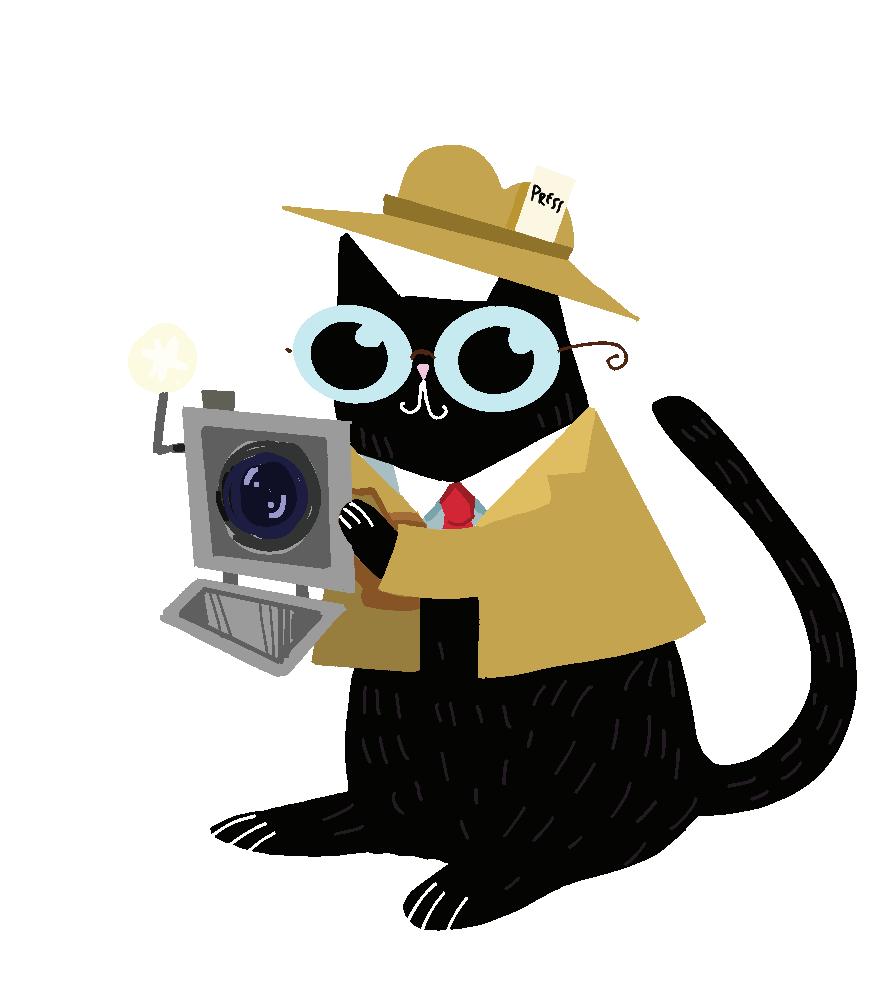
Searcy was recently awarded a $500,000 grant from the Arkansas Department of Transportation to expand and improve the Davis Drive Connection, a popular walking and biking trail in the city.
The grant from the Transportation Alternatives Program will expand the trail from 5.5 miles to 21 miles, which would connect several key parts of Searcy together, including Harding University, schools, parks, medical centers and downtown Searcy.
After the announcement, Harding students and staff were hopeful that it will connect Searcy in ways that aren’t possible now. Sophomore Jack Bulhoes said the
expansion would give him more reasons to explore the outdoors.
“I think it’s really neat that they’re using the money for parks and a trail,” Bulhoes said. “I feel like with these upgrades I can be more outdoors, and while I’ve never been to any of the parks, this will entice me to use them more often.”
Sophomore Landon Seely said that he’s always loved the outdoors and believes that the completed trail would allow for greater chances for him to experience Searcy’s parks.
“It’s a great way to spend time with friends and family,” Seely said. “Searcy is a smaller city and as someone who comes from a pretty small town, it would be a great investment for people coming through, and a great place to go on weekends.”
Seely sees the outdoors as a way to admire the world around him, and with his additional interest in hiking, he sees the expansion as a positive for Searcy.
“The outdoors remind me of God’s beautiful creations,” Seely said. “Hiking allows me to do that and to get a good amount of physical exercise.”
Harding staff were also optimistic about the expansion and how it could impact the community, but also Harding organizations and students as well.
MK Reineart, director of Harding Outdoors, said that an expansion like this gives more space for Harding students to be active in a relatively close proximity to campus.
Reineart said that the grant shows that Searcy cares about the importance of outdoor activities, and she’s thankful that the project got approved.
“Hopefully, this will encourage more students to get outside since these trails will be so close and easily accessible,” Reineart said. “This trail expansion is an amazing idea, and I am so glad that this much money is being put towards the outdoors.”
“This will allow students the opportunity to have very easy access to more hiking trails and biking trails,” Reineart said. “Students will no longer have to travel as far as Little Rock or Heber Springs or even further to go on their adventures.”
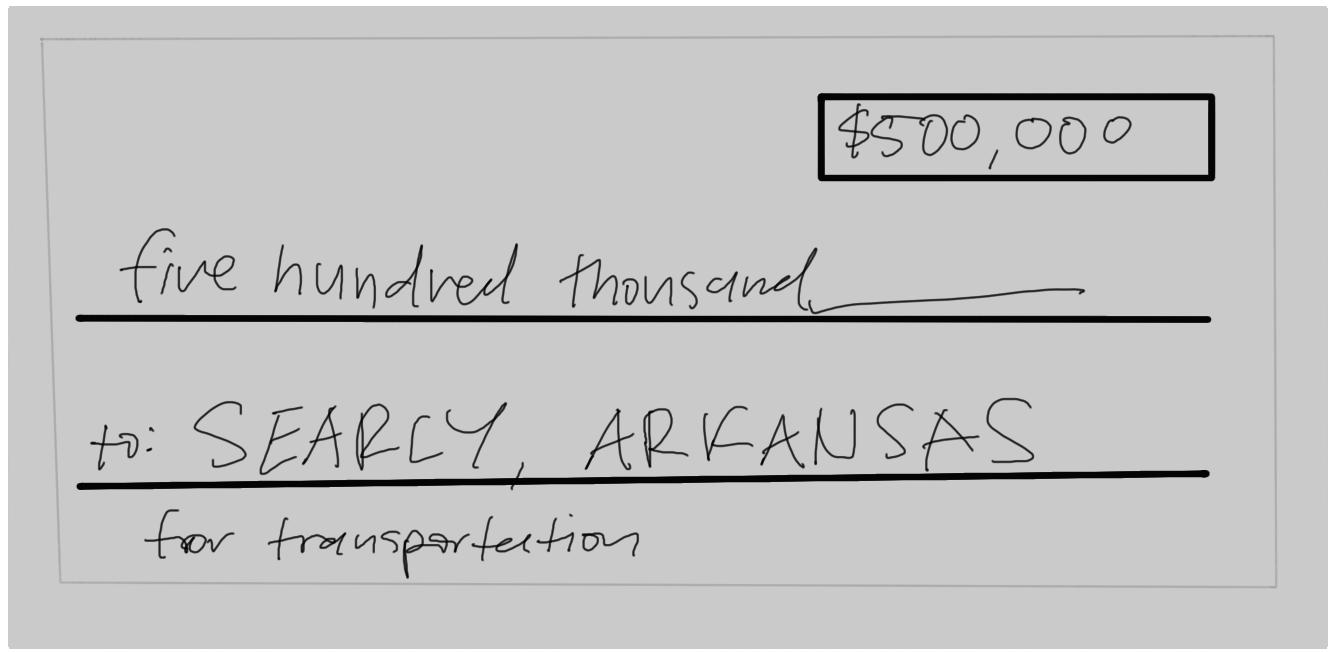
NATALIA LAGO beat reporter
Women’s social clubs Delta Gamma Rho and Ko Jo Kai are hosting a concert tonight at 7 p.m. on the Midnight Oil Stage. Tickets are $5 each.
The two club service directors met with the intention of discussing a possible charity concert. The idea blossomed under sophomore Nona Nielsen of DGR, who put it into action and has been coordinating the event thus far. The two clubs have collaborated to create an all-girls band to perform a set list of iconic indie songs written by women.
The set list includes “You’re So Vain” by Carly Simon and “Still Into You” by Paramore. The band consists of Ko Jo Kai members senior Corinne Scott playing bass, sophomore Delaney Anderson playing drums, junior Aynsley Steward playing keys, junior Eva Gaugh on the violin and singing; Delta Gamma Rho members sophomore Josey Myers singing, sophomore Anna Robertson singing and playing piano, Nielsen on guitar, junior Henely Sanders on guitar and banjo and sophomore Lora Bensinger on electric guitar.
Gaugh expressed the goal of this concert.
“All proceeds to this concert go to Rachel’s House, which is a shelter for women who have escaped domestic violence,” Gaugh said. “By putting on the show, we hope to support this ministry, foster club unity and create a time for fellowship and community.”
Bensinger shared her hopes of what the outcome might be.
“The vibe is probably gonna be singalong,” Bensinger said. “Dance, sing along and hopefully, we’ll have the audience singing with us a lot. The goal is that people are just enjoying themselves and joining in.”
Bensinger said that the group has enjoyed getting to know one another and relying on each other, as event planning has taken a significant amount of time. Bensinger explained that the time and effort going into this concert have been rewarding.
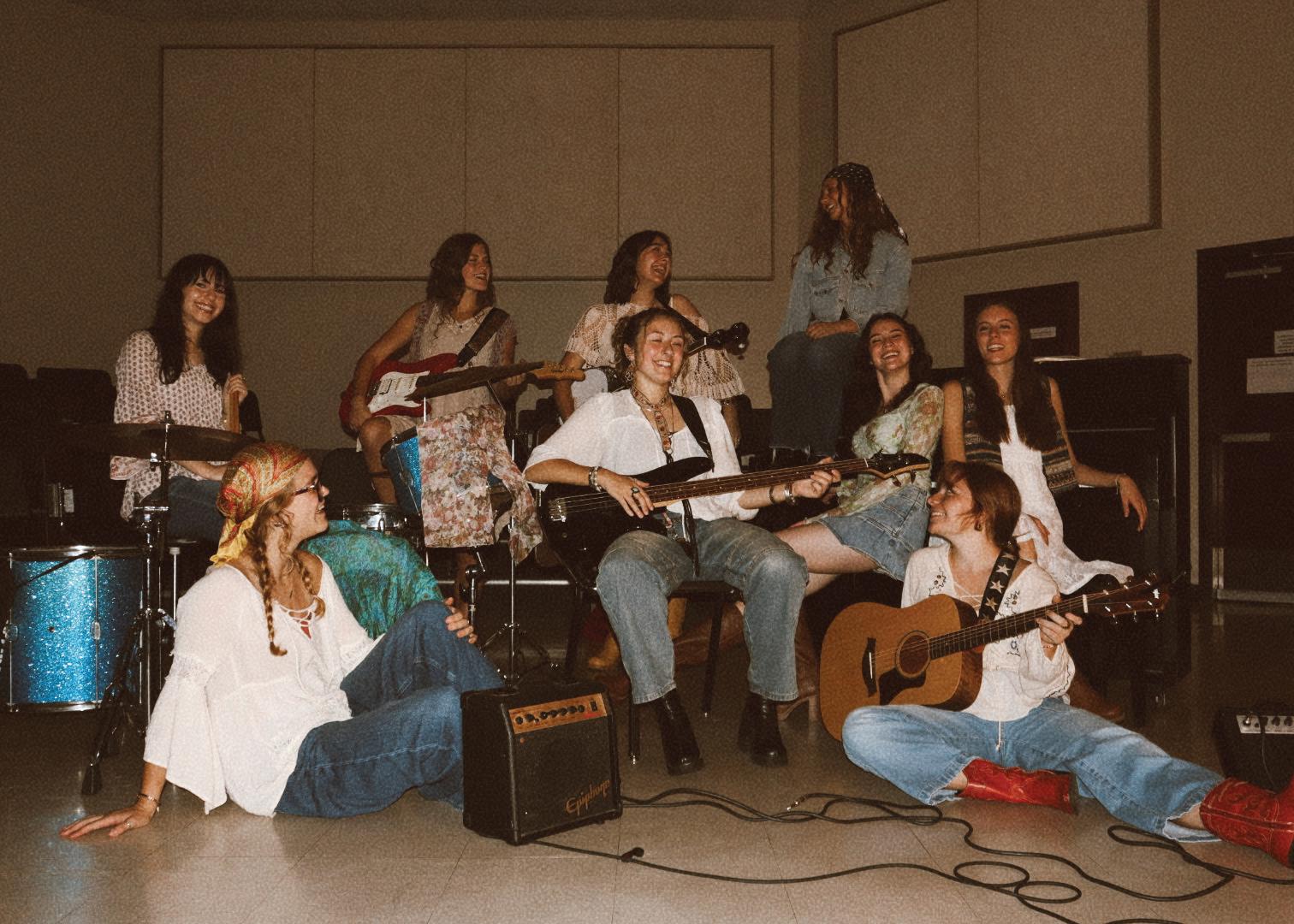
concert. The
will
Nielsen expressed a similar feeling when asked about this experience.
“In preparation for this concert, it has been so fun to just get in a room with an
“We’ve had practices once a week until two weeks ago, and then we’ve had them three times a week since. So we’ve been hanging out a lot all together,” Bensinger said. “The girls have been really encouraging and uplifting towards each other and creating an atmosphere that takes away a lot of the stress. There have been days that I’ve worked really, really hard on practicing my parts. And then I show up, and I automatically feel like people can tell and people have encouraged me, and been like, ‘I can tell you worked hard.’ … I’ll play a little riff or solo, and everyone would be like, ‘oh, Lora, you’re so hot!’ or whatever. And it always makes me feel a lot more confident about myself.”
awesome group of girls and just have fun together,” Nielsen said. “I’ve loved seeing everyone’s talents and watching how our hard work is making us better over time. It’s also so rewarding knowing that this isn’t about us, but about raising money for something really important!”
The two clubs have enjoyed collaborating together and getting to know one another, making their dream come true and getting to support such an important cause.
MICHAEL WRYE beat reporter
Starting this semester, Harding is an official partner of a recently launched post-college gap-year ministry program called Project 10:2. The name is a reference to Jesus’ words in Luke 10:2: “The harvest is plentiful but the workers are few.” The program aims to alleviate the shortage of ministry leaders in Churches of Christ by drawing more young people into full-time ministry careers.
Chris Buxton, co-founder and executive director of Project 10:2, described the trajectory of the program.
“For 21 years I led college ministries,” Buxton said. “In 2020, I launched ULife Consulting. As part of that work, I began to lead job searches for vacant ministry positions across the country. It was then that I began to understand the true depth of the minister shortage in Churches of Christ. Helping churches fill vacant ministry positions is easily the most difficult thing I do because there are so few available candidates.”

Buxton worked with other leaders in the Churches of Christ to develop the program.
“Three friends, Dr. Mark Hooper at Mission Resource Network, Scott Lambert with The Conversation Group and Neil Reynolds at Kairos Church Planting, were all noticing the same thing,” Buxton said. “About two years ago, we began a serious conversation about what could or should be done. It didn’t seem like much was happening to help address the issue. So, after a few months of praying and planning, Project 10:2 was born. We formally launched this fall, and we will be recruiting our first class through Spring Break. Our worker candidate vetting will happen in late spring, and our first workers will be placed by Labor Day.”
Project 10:2 offers participants the opportunity to explore what life in ministry is like and determine if it is right for them without making a long-term commitment. The program connects participants to approved partner churches and ministries where they will receive real-world, hands-on experience, spiritual mentoring and an opportunity to develop their leadership skills.
Buxton is contracted with Harding to serve as the point leader for Project 10:2 and teaches part-time for the College of Bible and Ministry. Many Harding Bible faculty have high hopes for Buxton’s new program. Dr. Mac Sandlin is a strong supporter of the program and sees it as a great fit for Theological Studies graduates.
“I think that so many students, when they graduate, aren’t quite sure what’s next,” Sandlin said. “And a year where you’re not just living in your parents’ basement and being a barista at a coffee shop, but instead actively pouring into the church and the community while discerning what’s next, is a terrific opportunity. I have a lot of confidence in Chris Buxton and the other people running it. These guys have a proven track record of doing great work preparing people for ministry and launching them into ministry, so I respect them a lot.”
One of the first opportunities for recruitment for the program was a retreat for senior Bible majors hosted at Dr. Scott Adair’s house on Thursday, Nov. 6.
“It’ll be a time to get together and talk about next steps,” Adair said. “We’re gonna have lots of faculty there and just kind of walk alongside them as they’re making decisions, I think that students often aren’t quite ready to commit to ministry, it can be a bit scary. But if they tried it for a year or two, like in an apprenticeship, then it might be a great match, and they might get a taste for it.”


PART-TIME AND FULL-TIME POSITIONS AVAILABLE



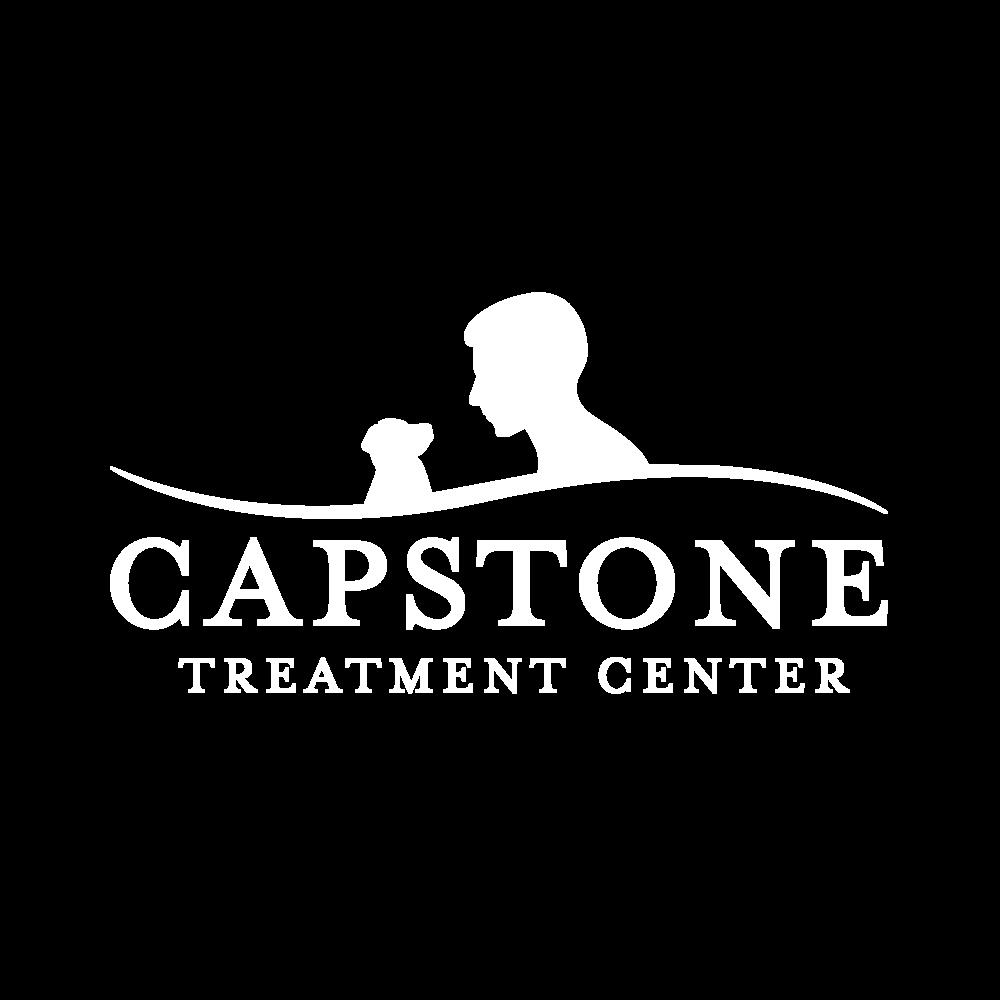
Capstone Treatment Center works with young men ages 14-28 struggling with a wide range of hurts, struggles, compulsions, addictions and other self-destructive behaviors. The primary duty of Support Staff at Capstone is to ensure the safety, care, and well being of clients residing on campus. This role offers the unique opportunity to mentor, encourage, and support young men that are struggling and provide a positive example during their time at treatment.
Visit capstonetreatmentcenter.com to fill out your online application.